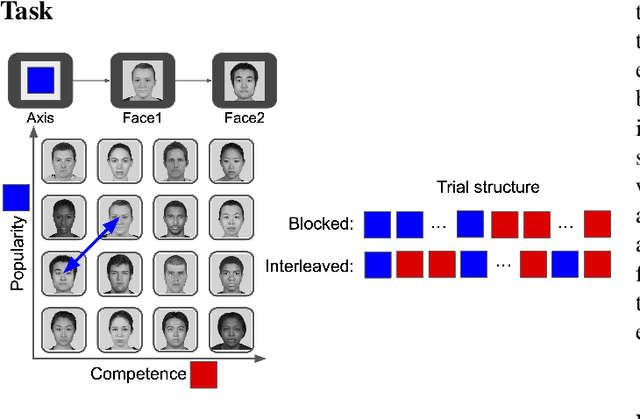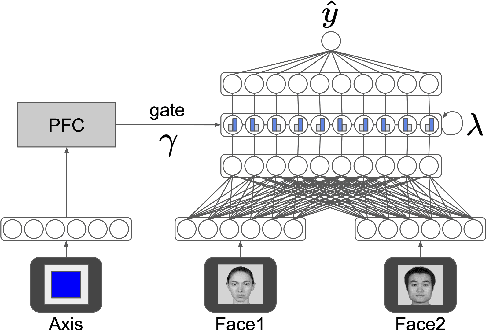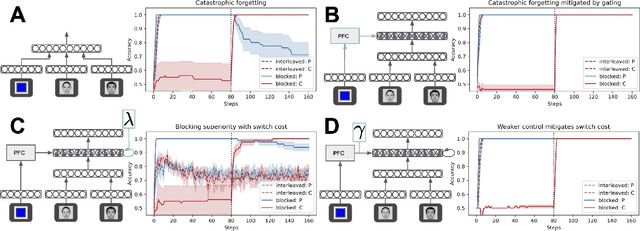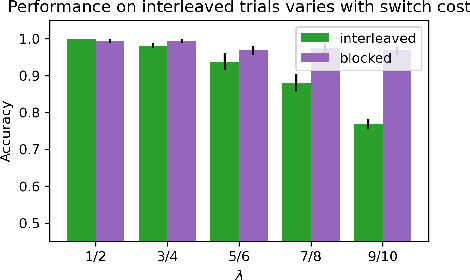A Neural Network Model of Continual Learning with Cognitive Control
Paper and Code
Feb 09, 2022



Neural networks struggle in continual learning settings from catastrophic forgetting: when trials are blocked, new learning can overwrite the learning from previous blocks. Humans learn effectively in these settings, in some cases even showing an advantage of blocking, suggesting the brain contains mechanisms to overcome this problem. Here, we build on previous work and show that neural networks equipped with a mechanism for cognitive control do not exhibit catastrophic forgetting when trials are blocked. We further show an advantage of blocking over interleaving when there is a bias for active maintenance in the control signal, implying a tradeoff between maintenance and the strength of control. Analyses of map-like representations learned by the networks provided additional insights into these mechanisms. Our work highlights the potential of cognitive control to aid continual learning in neural networks, and offers an explanation for the advantage of blocking that has been observed in humans.
 Add to Chrome
Add to Chrome Add to Firefox
Add to Firefox Add to Edge
Add to Edge